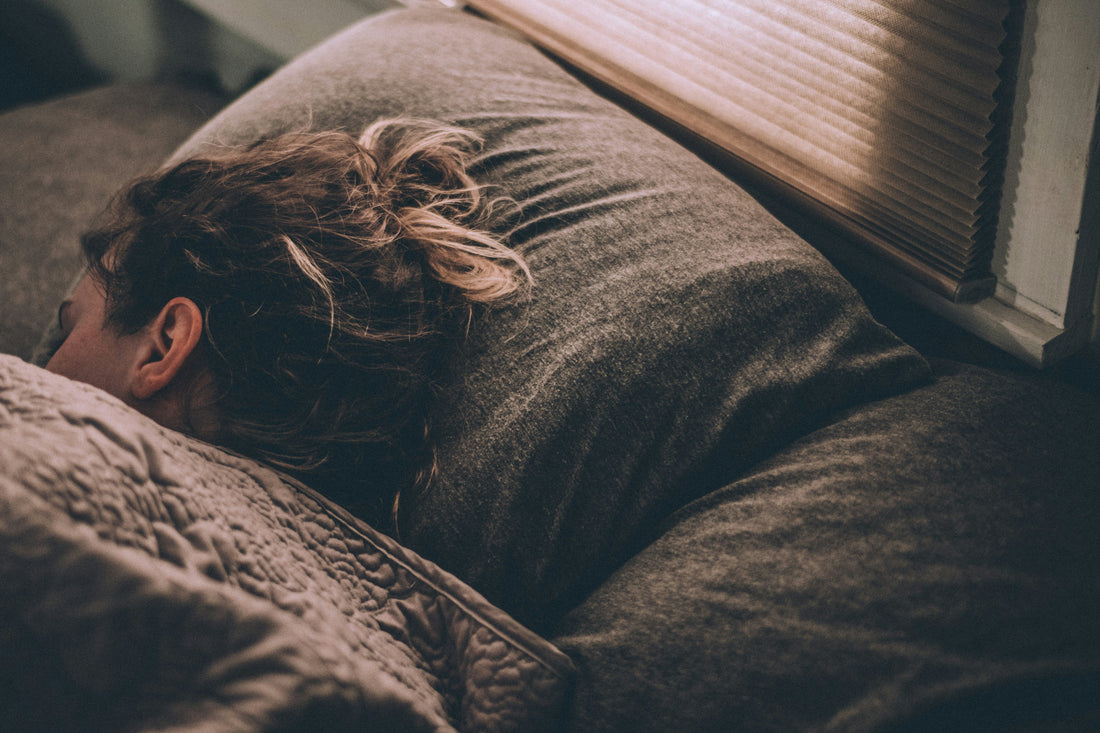
Decaf and Sleep: How Your Evening Cup Affects Your Rest
Share
Introduction
As wellness trends surge and sleep becomes the new health currency, decaf coffee is gaining popularity among those seeking comfort without compromise. This article explores how decaf affects sleep, unpacks scientific evidence, and offers actionable tips for coffee lovers who want to enjoy their brew without disturbing their slumber.
Understanding the Basics of Caffeine and Sleep
Caffeine affects the brain’s adenosine receptors, delaying sleepiness. Even small amounts can increase sleep latency and reduce REM sleep. According to the NIH, caffeine’s half-life averages 5–6 hours, meaning it can linger in your system well past bedtime.
What Exactly Is Decaf Coffee?
Decaf coffee is made by removing caffeine from beans using methods like the Swiss Water Process, CO2 extraction, and Ethyl Acetate (EA). Research shows that decaf typically contains between 2–15 mg of caffeine per 8 oz cup, depending on the brand and process, compared to 80–100 mg in regular coffee. Although labeled "decaffeinated," it's not entirely caffeine-free.
Does Decaf Coffee Affect Sleep? What the Science Says
Research from the Journal of Clinical Sleep Medicine shows that while decaf has much less caffeine, sensitive individuals may still experience minor disruptions if consumed late. Timing and individual metabolism matter.
The Best Time to Drink Decaf Coffee
Experts recommend avoiding decaf 2–3 hours before bed, especially for sensitive sleepers. Drinking it during dinner or early evening gives your body time to metabolize any trace caffeine before lights out.
Comparing Decaf to Herbal Alternatives
Herbal options like chamomile, rooibos, and chicory root contain zero caffeine and are naturally calming. Still, many prefer decaf for its familiar flavor and comforting routine, especially during social wind-down moments.
Benefits of a Decaf Nightcap
- Preserves the calming coffee ritual
- Reduces stress from eliminating caffeine
- Pairs well with other bedtime routines like journaling or reading
Side Effects and Considerations
Some individuals may react to even minimal caffeine. Others might experience acid reflux if drinking low-quality decaf. Always choose high-quality, water-processed beans to minimize side effects.
Real User Stories: How Decaf Changed Their Sleep Routine
Users on Reddit’s r/decaf share improved sleep, reduced anxiety, and even better digestion after switching to decaf in the evenings. Testimonials often highlight how decaf maintained their love for coffee while supporting better rest.
Expert Insights: Sleep Scientists and Nutritionists Weigh In
Dr. Matthew Walker, author of “Why We Sleep,” emphasizes caffeine’s sleep-disrupting properties. Registered dietitian Lisa Moskovitz recommends decaf for those looking to reduce overall stimulant intake without giving up their favorite beverage.
Tips for Creating a Sleep-Friendly Coffee Routine
- Choose beans labeled Swiss Water Process for minimal chemical exposure
- Combine your evening cup with screen-free time
- Add calming ingredients like cinnamon or oat milk
Debunking Myths About Decaf and Insomnia
- Myth: Decaf is 100% caffeine-free — False. Most have 2–15 mg.
- Myth: Decaf is bad for your gut — Not if it’s high quality.
- Myth: It has no benefits — It supports rituals and reduces anxiety.
Best Decaf Beans and Brands for Evening Brewing
- Frequent Coffee’s Sugarcane Process Decaf – smooth, rich, and sweet
- Counter Culture Slow Motion Decaf – chocolatey and creamy
- Kicking Horse Decaf – bold and deep for French press lovers
How to Brew Decaf for Maximum Relaxation
Use gentle brewing methods like pour-over or French press to extract smoother flavors. Pair your decaf with dark chocolate or almonds for a light, calming evening snack. Dim the lights and sip slowly to signal bedtime to your brain.
Conclusion: The Verdict on Decaf and Sleep
Decaf coffee, when timed right and brewed well, is a safe and comforting addition to an evening routine. For most, it does not significantly impact sleep and can even enhance relaxation. Listen to your body, choose quality beans, and embrace the ritual without the worry.
Sources and Citations
- NIH Study on Caffeine Metabolism
- Journal of Clinical Sleep Medicine: Evening Caffeine Effects
- Sleep Foundation: Caffeine and Sleep
- Harvard Health: Caffeine Overview and Impact
- National Coffee Association: Scientific Research
- Reddit: Decaf Community
FAQs About Decaf and Sleep
Does decaf keep you awake at night?
Most people can drink decaf in the evening without sleep disruption, though very sensitive individuals might still notice effects.
Is it okay to drink decaf coffee every night?
Yes, especially when using high-quality beans and pairing it with a consistent bedtime routine.
What’s the safest way to brew decaf for sleep?
Use water-based decaf methods and brew gently — French press and pour-over are ideal.
What is the best time to stop drinking coffee?
For most, stopping caffeine 6 hours before bedtime is recommended. Decaf can be enjoyed up to 2–3 hours before bed.
Are there any side effects of drinking too much decaf?
While rare, excessive consumption may cause acidity or interact with certain medications. Moderation is key.
